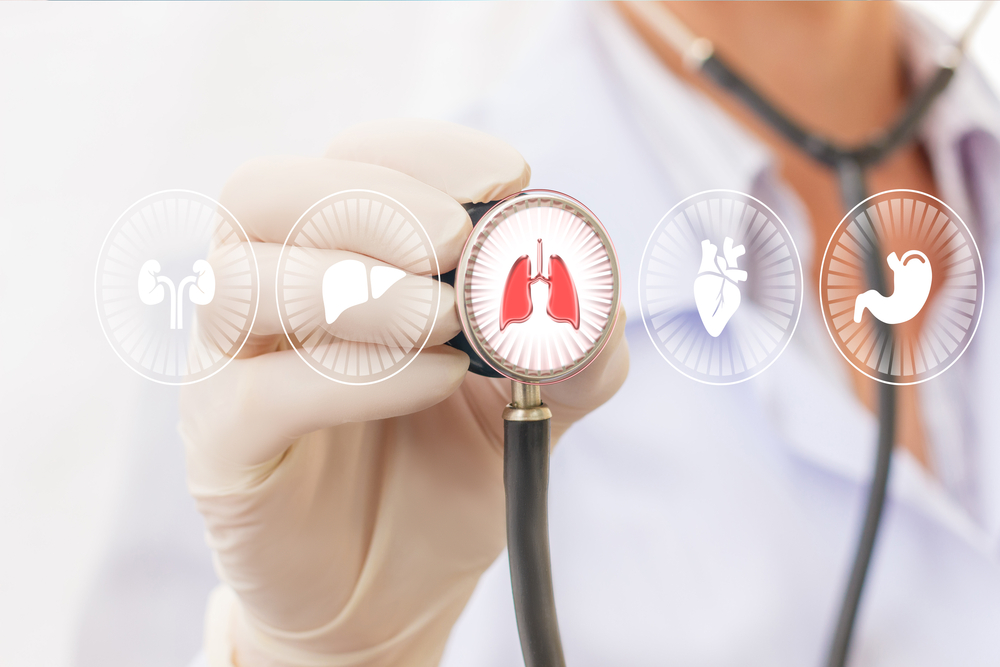R-107 Shows Promise in Early Study for PAH Linked to COVID-19
Written by |

Kalytera Therapeutics has announced positive early results for R-107, a liquid form of nitric oxide designed to treat pulmonary arterial hypertension (PAH) associated with COVID-19.
Nitric oxide, known as NO, is a gas naturally present in the lungs. It facilitates oxygenation by relaxing, or dilating, the blood vessels, allowing blood to flow smoothly.
R-107 is a liquid prodrug of nitric oxide, meaning that the compound is a precursor to its pharmacologically active form. Once injected into the body, R-107 is converted into its active form, called R-100, which steadily releases NO into lung tissues over the course of several days.
During lung infections, NO levels often drop, triggering a rise in pulmonary blood pressure that may lead to heart failure. The combination of high blood pressure in the lungs and the “leakiness” of blood vessels — which allows fluid to enter the lung tissue — during an infection can have a negative impact on the lungs’ ability to transfer oxygen into circulating blood.
This is particularly problematic in the case of a COVID-19 infection, which can lead to acute PAH and a serious complication called acute respiratory distress syndrome, or ARDS. Patients with these conditions often need intubation and mechanical ventilation to assist with breathing. However, it is difficult to administer oral therapies to intubated and mechanically ventilated patients.
Thus, to further its treatment options for people with PAH, Kalytera is in the process of acquiring the Salzman Group, the company developing R-107 as an injectable liquid.
Pre-clinical tests in rats that model the COVID-19 infection have shown encouraging results thus far. These models correlate closely with the way that lung failure occurs in humans with ARDS and PAH associated with COVID-19.
R-107 preserved the rats’ vascular function and returned their pulmonary arterial blood pressure to normal levels within 20 minutes of dosing. This improvement lasted for the full study period of four hours and showed no signs of side effects, such as an adverse impact on heart rate or peripheral arterial blood pressure.
According to Kalytera, these findings were significantly superior to other currently marketed compounds tested in the same animal models of PAH.
“There are currently no approved treatments for PAH caused by the COVID-19 virus, which is in fact a severe form of ARDS,” Robert Farrell, president and CEO of Kalytera, said in a press release. “Thus, we are highly encouraged by the results of this study, which demonstrate the potential of R-100, the active payload of R-107, to selectively lower blood pressure in the lung while leaving peripheral blood pressure unchanged.”
The compound also is being developed by Kalytera as an oral medication for chronic PAH, which is a progressive and fatal condition for which no cure yet exists. By developing it as an ingestible soft gel capsule, the company hopes that R-107 will serve as a viable outpatient medicine.
Kalytera intends to submit an investigational new drug application to the U.S. Food and Drug Administration and to the Australian Therapeutic Goods Administration to conduct a clinical study assessing R-107 in patients with COVID-19 associated pneumonia.
R-107 has been issued or is awaiting composition of matter and method of use patents in approximately 40 countries, including the U.S., Australia, Brazil, China, Europe, India, Japan, Russia, and South Korea.



